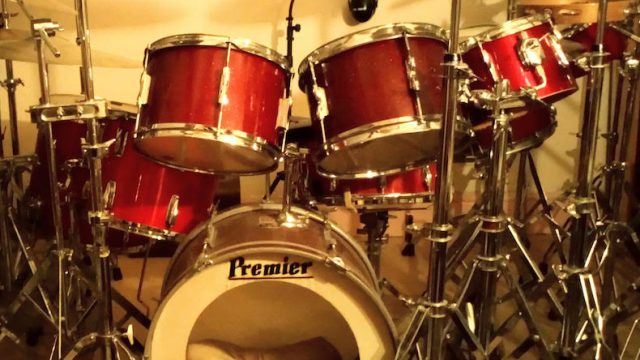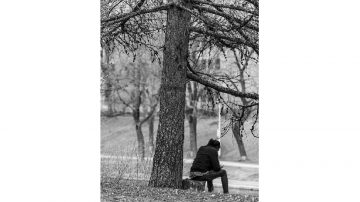I decided to share my story because I believe sharing helps shrink problems from terrifying monsters to something manageable. Once you open up, it loses its power. Sharing helps others too as someone else’s perspective can help, especially when you tend to be a pessimist like me. I often catastrophize and expect the worst, but talking to others brings a more grounded view.
My Journey
My health has been shaped by a combination of challenges, including OCD, ADHD, ME, depression and anxiety.
I knew I was a lesbian when I was 13. I already felt different enough as everyone in my family was seen as a bit ‘odd’ because we’ve all got ADHD. People labelled me tomboy, loner, and odd bod. They threw those words around like insults, and for a long time, I believed they were.
I fought hard against being gay not because I felt it was wrong but to avoid more labels.
By resisting to accept, I made myself deeply unhappy and started cutting myself when I was 15.
Looking back, it was a way to release the mental anguish and the chaos that was going on inside my head. I didn’t have the words for it at the time. I just wanted the pain in my mind to match the pain I felt in my body.
It became a kind of self-medication to make the pain visible. But like any form of self-medication, whether it’s alcohol, drugs, or something else, it eventually stopped working. After a few months, I became angry because it no longer gave me the relief I needed.
ME* and me
At the age of 21, my life changed forever. It started after I came down with glandular fever and never recovered properly. I went from being a fit, active person, working as a postwoman, to someone who could barely get out of bed. At one point, I needed my mum to help me go to the toilet. It was humiliating, and I felt like a ghost of who I used to be.
The fatigue and brain fog was overwhelming. I couldn’t even read a single page without the words slipping away. But the worst part was losing the ability to drum. I know it might sound small to others, but for me, not being able to play drums was massive. It wasn’t just a hobby but my identity. It gave me purpose, joy, and release, and suddenly it was gone. I couldn’t drum. I couldn’t work. I couldn’t even ‘be’ myself.
There was no passion, no falling into anything, only a bleak emptiness inside. I couldn’t see a future, and when I looked ahead, all I saw was nothing. I stopped listening to music, and it made me angry. It was like cutting off a part of myself, but it felt easier than being reminded of everything I’d lost.
In the early 90s, I didn’t know where to turn. I stopped taking antidepressants because they made me sick, and nothing else was offered. I was good at hiding how I felt and preferred being alone, but that only made things worse.
That loss of control sent me spiralling into a deep depression. To cope, I started drinking whiskey and got drunk every night, trying to numb the pain and escape the reality of what I’d become. But alcohol didn’t help, only dragged me down further. You go past that ‘feeling merry’ stage, and suddenly it is just a crutch.
After months of severe fatigue and debilitating symptoms, I was referred to a specialist clinic at Lodge Moor Hospital, where I was finally diagnosed with ME. It was a relief to have my symptoms validated, but also felt like a prison sentence.
I saw ME as the enemy and fought it hard, but you can’t battle it head-on. I kept pushing; it pushed back. You have to learn to work with it, not against it. But at the time, I couldn’t see that. I became someone I didn’t know, and worse, someone I hated.
Rock Bottom
In my opinion, there’s definitely a link between ME and mental health, but it’s misunderstood. ME is a physical illness that causes mental health symptoms, not the other way around. Unfortunately, many people still think it’s ‘all in your head’, which makes things worse.
One day late at night, I suddenly felt completely empty inside. I remember hearing the deep, distant drone of a plane overhead. My mum used to call it the ‘mail plane.’ That sound captured exactly how I felt—heavy, low and numb. And even now, when I hear that same sound, it takes me right back to that moment. I see myself in that attic room, staring out the window, thinking: ‘My life is over here.’ Then the thought came: ‘What’s the point anymore? Maybe I should just kill myself.’ It was one moment, but it was serious and shocking, because it wasn’t something I had ever even considered. That was the moment I realised I had hit rock bottom, and I had a choice: I could either end my life, or I could climb back out.
Suicide affected me even more when my dad’s best friend took his own life. He was such an affable bloke and really easy-going and the last person you would ever have thought would take his own life. That really gets to me because he completely changed my life by giving me my first drum. That gift meant so much to me.
His suicide deeply affected and destroyed his family; it also had a huge impact on me. It opened my eyes to the ripple effect suicide can have on everyone around them. The pain it leaves behind is enormous. I thought about my family, especially my mum. I knew it would destroy her if I gave up. And that stopped me. That gave me just enough strength to take a step back, to hold on, even when things felt unbearable.
First Step to Ask for Help
Please don’t keep everything bottled up inside and shut yourself away. It only makes things harder. I know how difficult it is; maybe one of the hardest things is to ask for help. And I know the minute you take that first step it won’t magically fix everything, but it can shrink what feels overwhelming down to a size you can actually deal with.
I wasted years of my life isolating myself, thinking I had to carry it all alone. Please don’t make that mistake. Let someone in, whether it’s a professional or a trusted friend, a family member, anyone.
And if you can’t talk about it yet—write it down. Get it out of your head and onto paper. Later, when you read it back, it often feels different. Lighter. Less overwhelming. Like maybe you can face it after all.
What Helped Me
I learned about pacing and managing my energy to avoid crashes, which helped a lot, though it’s tricky with my ADHD and low boredom tolerance. Finding a way to balance my activities has been key to coping. Counselling helped me stop being so negative about myself. I used to blame myself for everything, but now I’m learning to be kinder.
Small things help me: my cats, who love me unconditionally; being outside in nature; going to the beach and looking at the vast sea—it makes your problems feel small. I also practice mindfulness and have even started ‘hugging trees,’ which I never thought I’d do, but it feels powerful.
Writing poetry has been a huge help too. I’d locked away my grief for years after my mum died, but writing a poem called Frozen helped melt that block inside me. Since then, I’ve written about 130 poems, and continue to write. It helps me process my feelings.
Music also brought me back. When I pushed music out of my life, I lost my sense of humour, and that was a huge warning sign. I hadn’t laughed or found joy in months during my darkest times.
My family was a huge help for me throughout everything. Their support gave me strength when I felt like giving up. And finally, the healing power of love. It only takes one person to help; for me that is my partner. She doesn’t judge me; she loves me for who I am.
Are You All Right? I Really Want to Know!
When I was a teenager, I was skipping school, what we used to call ‘wagging’. Nowadays, you might get fined for that. One day I was sitting on a bridge over a river daydreaming and waiting for the time to go home. A woman came up to me and asked, “Are you all right?”—and she truly meant it. The bridge wasn’t very high, but if I had been feeling suicidal, that moment could have saved me. It only took her a few seconds, yet I still remember it 43 years later. That says a lot, and her kindness stood out. People don’t do that enough.
Sometimes, after someone dies, people start to wonder: Would it have been different if we had paid more attention? What if we said, How are you, and actually meant it?
Once you see a red flag and notice someone struggling, just ask the question like you mean it and ask for the real answer. Those small things can make a huge difference. They can be life-saving. It’s a simple thing, but it’s powerful. It’s true for everyone—professionals, friends, family. Just care!
* ME stands for Myalgic Encephalomyelitis, also called chronic fatigue syndrome CFS.
This story by Sozzy is part of Suicide Prevention project funded by Sheffield City Council and run by Sheffield Flourish. Through one-to-one conversations short personal stories have been created, aiming to spread awareness around suicide, and break down stigma.



